As our loved ones age, it’s natural to want them to maintain their independence and enjoy life in their own homes for as long as possible. However, there comes a time when additional support may be necessary to ensure their safety, health, and overall quality of life. Recognising the signs that your loved one might need home care assistance can be challenging but crucial. Here are some key indicators that professional home care could be the right choice for your family.
1. Difficulty Managing Daily Activities
If your loved one struggles with basic daily tasks such as cooking, cleaning, bathing, or dressing, it may be time to consider home care. These activities are essential for maintaining a safe and healthy lifestyle, and home care professionals can provide the support they need to continue living comfortably.
2. Frequent Falls or Mobility Issues
Seniors with decreased mobility or balance issues are at a higher risk of falls, which can lead to serious injuries. If you notice bruises, unexplained injuries, or hesitance to move around the house, it may indicate that they need assistance with mobility or a safer living environment.
3. Changes in Personal Hygiene
Neglected grooming, infrequent bathing, or wearing the same clothes for days can signal that your loved one is finding it hard to maintain personal hygiene. These changes might also point to physical limitations or even depression.
4. Poor Eating Habits or Weight Loss
An empty refrigerator, spoiled food, or significant weight loss may suggest that your loved one is struggling to prepare meals or forgetting to eat altogether. A home care provider can help with meal preparation and ensure they maintain a balanced diet.
5. Decline in Home Maintenance
A cluttered, dirty, or unkempt home can be a sign that your loved one is overwhelmed with the upkeep of their living space. Home care assistance can help with light housekeeping, ensuring a clean and comfortable environment.
6. Memory Problems
Forgetting appointments, misplacing items, or missing medication doses are common signs of cognitive decline or the early stages of dementia. Home care professionals can help with medication reminders and provide cognitive support to help your loved one stay on track.
7. Social Isolation
If your loved one no longer participates in social activities, avoids phone calls, or seems lonely, they may benefit from companionship care. Home care services provide social interaction and emotional support, helping them stay engaged and connected.
8. Signs of Depression or Anxiety
Mood swings, withdrawal from favourite activities, or increased irritability may indicate mental health concerns. A compassionate caregiver can provide emotional support and encourage activities that bring joy and purpose to their daily life.
9. Chronic Health Conditions
Managing chronic illnesses such as diabetes, heart disease, or arthritis can be overwhelming. Home care providers can assist with managing symptoms, following treatment plans, and ensuring regular medical check-ups.
How Home Care Can Help
Home care services offer tailored support to address your loved one’s unique needs, allowing them to remain in the comfort of their own home while receiving professional care. From help with daily tasks and personal care to emotional support and medical assistance, home care can provide peace of mind for both your loved one and your family.
When to Act
Recognising the signs early and seeking home care assistance can prevent small challenges from turning into bigger problems. If you notice any of these signs in your loved one, consider reaching out to AYS Home Care to discuss how we can support your family’s needs.
Let’s work together to create a safe, happy, and independent life for your loved ones.
Contact us today to learn more about our personalised home care services.

